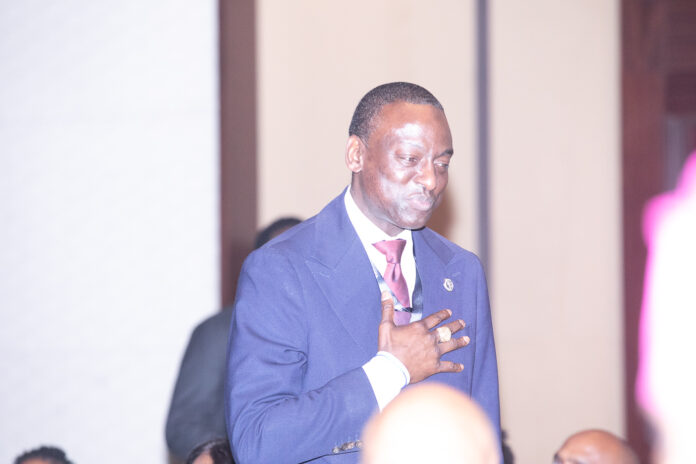
By Stacy M. Brown, NNPA Newswire Senior National Correspondent
The five men wrongfully convicted in the 1989 Central Park assault case, known as the “Exonerated Five,” have filed a defamation lawsuit against former President Donald Trump after he made false statements during a September 10, 2024, presidential debate. The lawsuit, filed in federal court in Pennsylvania, claims that the 34-times convicted Trump falsely asserted they had “pleaded guilty” to the crime and falsely stated they “killed a person ultimately” during the assault, claims that have widely been debunked.
Antron McCray, Kevin Richardson, Raymond Santana, Korey Wise, and Yusef Salaam—who spent years in prison before their 2002 exoneration—accuse Trump of defaming them, painting them in a false light, and intentionally inflicting emotional distress by continuing to spread falsehoods about their case. The lawsuit references Trump’s debate comments, which were broadcast to millions of viewers, as particularly harmful given the ongoing efforts by the men to rebuild their lives after their wrongful convictions.
While Trump has lashed out at the innocent men, the twice-impeached former president is awaiting sentencing after being convicted of 34 felony charges in New York. A civil jury also found Trump guilty of sexually assaulting a journalist, and a judge levied a verdict of nearly $500 million against the Republican presidential nominee for committing massive business fraud.
The court filing provides a detailed account of Trump’s decades-long association with the case, beginning in 1989 when he famously took out full-page ads in New York City newspapers calling for the death penalty in response to the arrests of the five teens. The lawsuit notes that, despite the exoneration of the five men based on DNA evidence and the confession of the actual perpetrator, Matias Reyes, Trump has continued to make inflammatory and false remarks about their guilt.
“Plaintiffs never pled guilty to any crime and were subsequently cleared of all wrongdoing. Further, the victims of the Central Park assaults were not killed,” the lawsuit states, pointing to the fact that the actual perpetrator’s confession and DNA evidence absolved the men of all charges. The lawsuit also notes that Trump’s remarks were made negligently, with knowledge of their falsity or reckless disregard for the truth.
The men, now in their 50s, have since become advocates and public figures, working to address the injustice they suffered. Yusef Salaam, a New York City Council member, was present at the September 10 debate and later confronted Trump in person. When Salaam introduced himself, Trump reportedly waved him off, saying, “Ah, you’re on my side then,” to which Salaam replied, “No, no, no, I’m not on your side.”
The lawsuit asks for unspecified compensatory and punitive damages with a focus on the emotional harm and damage to Trump’s reputation that his repeated lies have caused. “These statements have caused the plaintiffs serious reputational damage and severe emotional distress, especially given their wrongful convictions and efforts to move past this chapter of their lives,” the filing states.
In 2002, the men were exonerated after DNA evidence linked Reyes, a serial rapist, to the assault on a female jogger in Central Park. Their convictions were vacated, and the City of New York ultimately paid the men a $41 million settlement in 2014. Despite these facts, Trump has maintained his stance.
“Trump’s statements were false and defamatory in numerous respects,” the lawsuit asserts. “The exoneration of the plaintiffs is a matter of public record, yet Trump’s continued public statements attempt to rewrite history and cast doubt on their innocence.”
The lawsuit also draws attention to Trump’s previous statements, including a 1989 ad in which he called for the death penalty and a 2013 tweet where Trump referred to the exoneration as a “one-sided piece of garbage” and continued to imply their guilt. Despite overwhelming evidence proving their innocence, Trump’s remarks have perpetuated misinformation, resulting in ongoing harm to the plaintiffs, the filing states.

